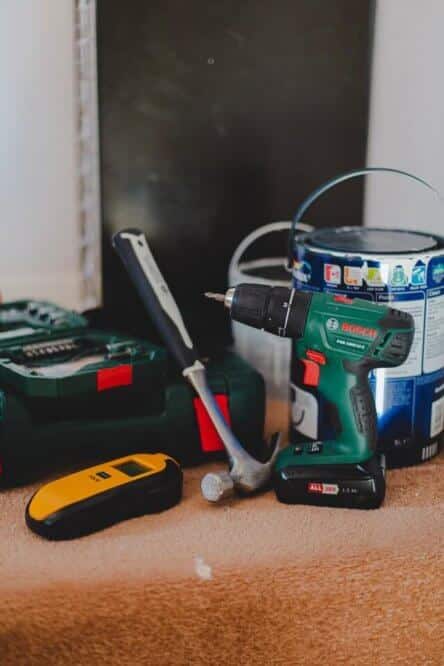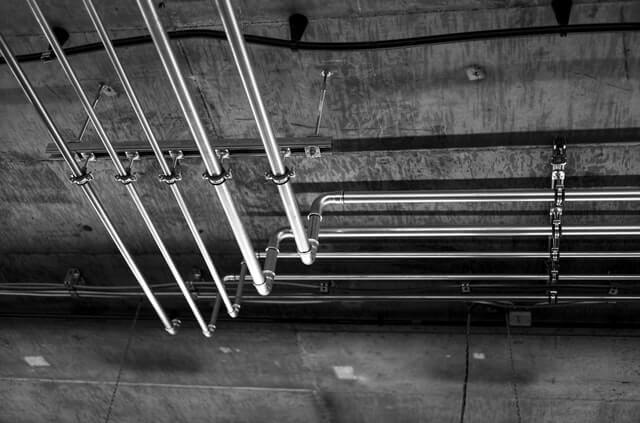Will vinegar hurt PVC pipes? How’s it different than commercial cleaning agents? Is it safe to use vinegar and baking soda to unclog pipes? Let’s find out now.
Grease, food, hair, tampons, baby wipes – there are quite a few things that can clog your drains or even cause more serious problems.
When a major clog happens, probably the first thing that will cross your mind is that you should use the as strong chemical as possible to break through it.
However, you will probably not question whether this chemical can damage your drain pipes. It all depends on the type of pipe, and PVC pipes are the trickiest. Think twice before using harsh chemicals on your PVC pipes.
On the other hand, you also know vinegar is one of the most effective solutions for clogged drains.
Will vinegar hurt PVC pipes?
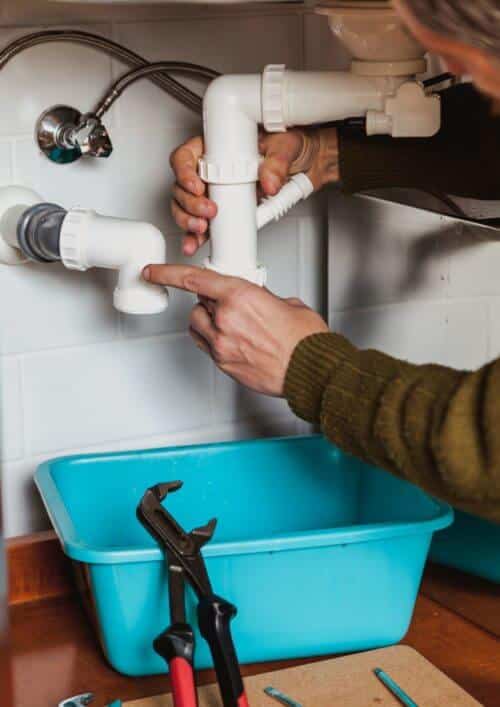
In a nutshell – vinegar won’t damage your PVC pipes in any way as it is not formulated like other, chemical cleaners. Vinegar is indeed acidic but it doesn’t generate heat inside the pipe, which could make it start melting (the thing that can happen when using strong chemical agents, although not necessarily).
Down below, we’ll elaborate further is vinegar safe for PVC pipes, how is it better than chemical solutions, and the best way to use it to unblock clogs.
Does Vinegar Damage PVC Pipes?
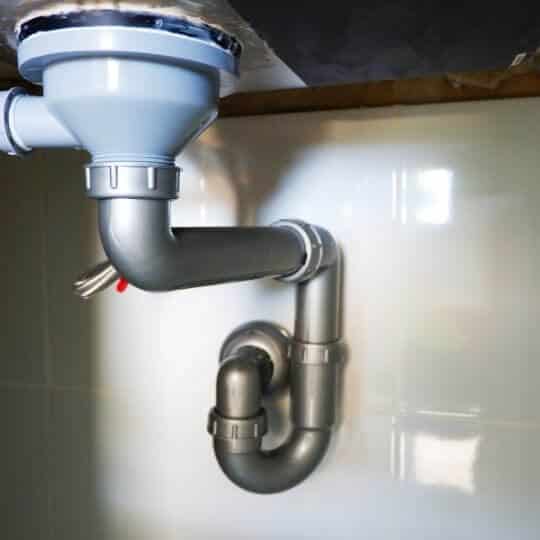
No, vinegar doesn’t damage PVC pipes. Some people believe that just because it is acidic [1], vinegar is corrosive at the same time and it can harm the integrity of PVC pipes.
In fact, regular vinegar is around 4-7% acetic acid. The strongest form of vinegar is pickling vinegar (at about 7% acetic acid).
Anything above 7 or 10% is considered acetic acid and shouldn’t be used for unclogging PVC drain pipes. What is even more, you wouldn’t be able to buy anything over 10% (unless you have a license).
Indeed, vinegar can bite through some natural materials, but PVC pipes are definitely not that soft. PVC or polyvinyl chloride pipes [2] are very popular for their cost-effectiveness, strength, and durability.
They are also resistant to corrosion and rust and are thermoplastic, meaning getting into contact with vinegar won’t hurt them.
Vinegar is a powerful cleaning solution and, in many cases, a much better cleaning solution than dozens of commercial cleaning products on the market. No matter what caused the clog, whether it be food, hair, or anything else, no matter how severe the problem is, do not reach for harsh chemicals.
Vinegar is 100% safe to use for cleaning your shower head, bath drain, toilet bowl, and your PVC pipes. Even if you just want to clean your toilet bowl with vinegar, once you flush it, vinegar will start running through your drain pipes, and do some extra cleaning.
Vinegar vs Other Cleaning Agents
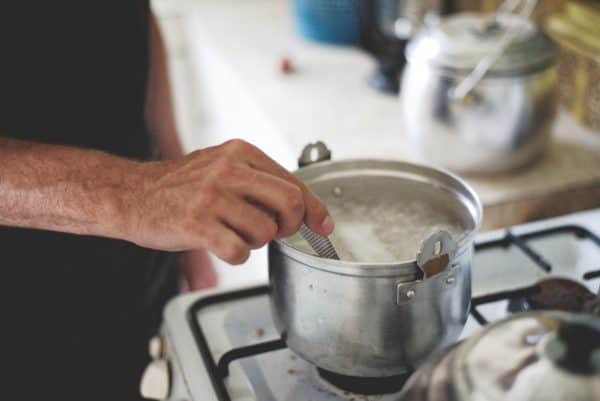
Although PVC pipes are very durable and resistant to many elements, they simply can’t stand commercial cleaning products that trigger strong chemical reactions. Some of the most damaging chemicals for PVC pipes include sodium hydroxide and sulfuric acid that tend to generate heat when they come into contact with water.
The number one thing PVC pipes are sensitive to is – heat. The stronger the chemical, the more damaging it becomes when mixed with water as it starts generating more and more heat so the water may even start boiling, which can make your PVC seals and pipes melt.
Vinegar is, believe it or not, much milder than any of these chemicals. Typically containing no more than 7% of acetic acid, it can’t cause any damage to your drain pipes. However, be careful if the idea of pouring boiling water down your drain after using vinegar comes to your mind.
This may not be a wise move because of the reaction acid can make when it mixes with boiling liquids. Either way, even pouring just boiling water down your drain may cause some damage to the pipes and cause leaks.
Boiling water can do wonders when it comes to clogged cooper pipes but, unfortunately, this trick won’t work with PVC pipes.
How to Clean PVC Pipes with Vinegar?
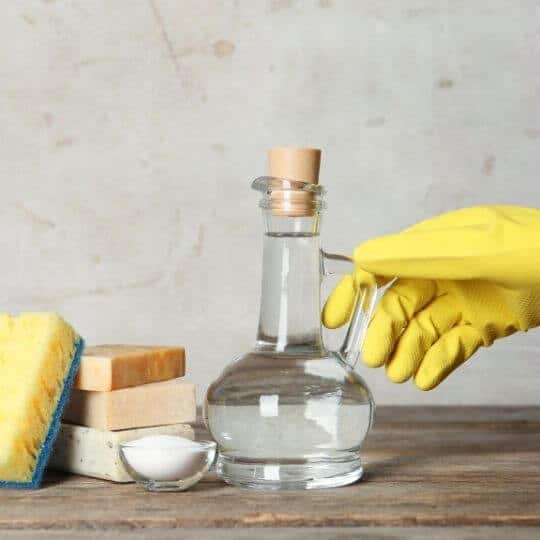
As we said, vinegar can do miracles even with major clogs in PVC pipes. However, if you want to truly unleash its power, use vinegar and baking soda mix. When you combine these two powerful cleaning agents, you’ll produce carbon dioxide.
When carbon dioxide gets into contact with water, it can lose and goop out almost any material because of the pressure that generates in the pipes (without making you question will vinegar hurt them).
We recommend using distilled white vinegar or apple cider vinegar as the most effective.
Follow these 4 steps to clean PVC pipes using vinegar and baking soda:
- Pour a bucket of warm water down the drain (we have already elaborated why boiling hot water and PVC pipes don’t go together),
- Mix 1 cup of vinegar and 1 cup of baking soda and pour this solution down the drain as well,
- You can also close the drain (optionally) so more pressure generates in the pipe, in case you believe you are fighting a severe clog,
- Leave the mixture to sit in there for 10 to 15 minutes,
- Pour another bucket of warm water and wait for the bubbling or fizzing reaction.
As simple as that, you’ll get rid of that nasty clog and clear a slow drain in less than 20 minutes without using harsh chemicals or damaging your PVC pipes.
Is It Safe to Use Vinegar and Dish Soap?
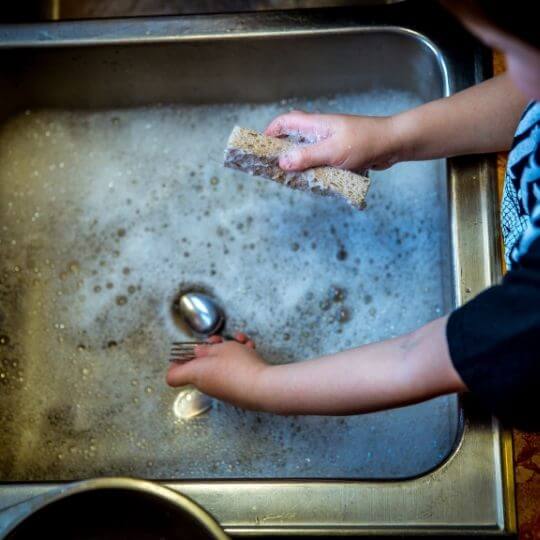
Absolutely! You can use this mixture to resolve clogs in your sink. Dish soap is a bit thick and using it with vinegar will create a perfectly textured cleaning agent. You can use this solution as a sprayable cleaner or pour it down the kitchen sink when it is not draining.
If there is a lot of grease down there, you might want to use salt as well. Salt can bite through grease and fats accumulated in the drain. Just pour a bucket of warm water down the drain once you’re done cleaning.
Lemon juice might help as well – basically any homemade or DIY solution except the chemical ones. Maybe you should consider using Coca Cola or Pepsi.
These drinks are acidic and can help with unclogging smaller hold-ups in PVC pipes and certainly won’t damage them.
What Should You Never Mix Vinegar With?
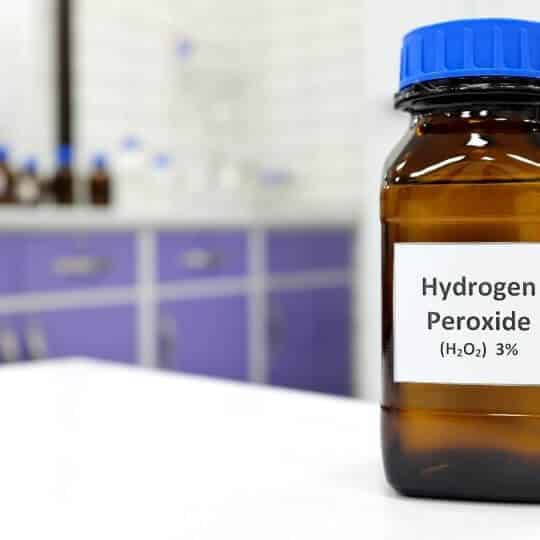
Mixing vinegar with hydrogen peroxide would boost vinegar’s cleaning power, however, the combination of these two powerful agents might damage your PVC pipes.
Also, do not mix vinegar with bleach. So, does vinegar hurt pipes? Only when used in a combination with such ingredients.
Summary
Will vinegar hurt PVC pipes?
Not at all. Vinegar is acidic, but that type and degree of acidity won’t hurt your PVC pipes the way 10 or 20% acetic acid or sulfuric acid and other cleaning chemicals would.
Using commercial cleaning products can make your PVC pipes and pipe seals melt, damage them in the long term, and get a decent amount of money out of your pocket. Using vinegar and baking soda cleaning solution is the best, safest, and most budget-friendly way to unclog your PVC pipes.

Michael Davis is a heating & plumbing expert who currently works as independent contractor in SC. He also writes for Plumbertip.
For almost 10 years he worked on various plumbing tasks across South Carolina.
